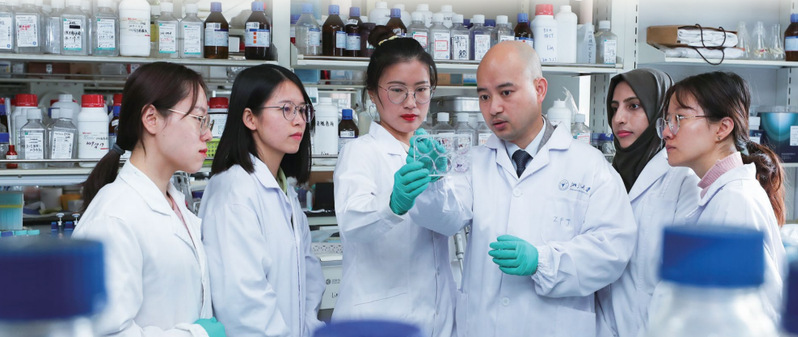In 2024, Zhejiang University School of Medicine was awarded the “Cell-
Microenvironment Interaction Discipline Innovation Introduction Base” under the “111 Center”, a prestigious initiative launched by the Ministry of Education and the State Administration of Foreign Experts Affairs . This program aims to enhance the development of world-class disciplines at Chinese universities by attracting top-tier international talent and research teams, thereby advancing scientific innovation and global influence.
The “Cell-Microenvironment Interaction Discipline Innovation Introduction Base” (hereafter, the Base) is led by Professor YING Songmin, Executive dean of Zhejiang University School of Medicine and recipient of the National Science Fund for Distinguished Young Scholars. The overseas academic leadership is spearheaded by Professor Ian David Hickson, Fellow of the Royal Society and the Academy of Medical Sciences, and Professor at the University of Copenhagen. The Base is anchored in Zhejiang University’s Double First-
Class Disciplines in Basic Medicine, leveraging high-caliber platforms such as the State Key Laboratory of Brain-Machine Intelligence, the Key Laboratory of Cancer Prevention and Intervention, China National Ministry of Education, the National Pilot School by the Ministry of Education of China, and the Sino-German Center.
Centered on the study of cells and their microenvironment, the Base focuses on unraveling the molecular mechanisms underlying non-communicable
diseases, particularly malignant tumors and neuropsychiatric disorders. Its
research is organized around three core themes: cell-microenvironment
interaction, its role in tumor biology, and its implications for neuropsychiatric
diseases. Through international expert collaboration and talent development, the Base aspires to establish itself as a globally leading research hub in cell-microenvironment interaction. It aims to drive academic innovation, elevate the global competitiveness of Zhejiang University School of Medicine, and contribute to China’s “Healthy China 2030” national strategy.

